| 31st December | | |
India's moral police don't want to be thought of as moral police
| From Deccan Herald |
Chairperson of the Indian Central Board for Film Certification (CBFC) Sharmila Tagore feels that censorship should not be used for moral policing and preaching.
Though some kind of check was necessary, care should be taken not to stifle
entertainment, Sharmila Tagore said.
She said Members of the Board while avoiding to be moral police, should, however, act with great care as they were responsible to the civil society.
India is a multi-cultural, multi-lingual and
multi-ethnic country, and majority of the people want some kind of censorship, and the government has to take note of that, she said.
|
| 29th December | | |
Chinese film censors explain secret decision making
| From Google News
|
Zhang Hongsen, deputy director-general of China's Film Bureau and a censor himself, gave a rare briefing recently on the inner workings of the country's movie censorship process, which has come under fire from prominent Chinese filmmakers.
We're not only concerned about the political aspect of a movie,
said Zhang. A movie's style may be problematic. For example, some movies may poorly portray the customs of ethnic minorities . . . some are problematic in their portrayal of the rights of women and children. There are different problems.
One of the films that required heavy editing this year was director Li Yu's Lost in Beijing (Ping Guo) , a powerful story about the fallout after a Beijing foot massage parlour owner rapes one of his employees from the countryside.
Fang Li, the producer of
Lost in Beijing , said earlier he was asked to cut scenes depicting sex, dirty streets, gambling, the Chinese national flag, and Beijing's Tiananmen Square.
In a recent interview, Fang accused the movie censorship committee of operating
in a black box, saying it doesn't give reasons for the cuts it asks for.
Zhang said censors target sex and violence because China doesn't have a ratings system. All movies must be appropriate for viewing by people of all ages.
He said
China's movie censorship committee comprises 24 regular members - five Film Bureau officials, including Zhang, and 19 film professionals, including directors, script writers, cinematographers and movie critics and scholars.
The committee, whose
two-year term ends in May, also includes 13 "special" members who are brought in on a case-by-case basis for specialized issues like minority affairs, religion, law, foreign relations, and women and children's affairs, he said. Zhang, who is
43, said the youngest censor is 40 and none are older than 65. |
| 25th December | | |
Fighting repressive ban on 3 Philippines films
| From The Inquirer see
full article
|
The Philippines censor board has provoked two militant lawmakers by banning three films for purportedly casting the Arroyo administration in a negative light.
Gabriela Representatives filed a resolution seeking a congressional inquiry into the
ban. They alleged that the Movie and Television Review and Classification Board (MTRCB) was being used “for political repression.”
The complaint referred to the short films Mendiola and A Day in the Life of Gloria Arrovo , and Rights
, a compilation of public service announcements on human rights, extrajudicial killings and disappearances.
They said in a statement that The MTRCB, banning these movies has proven itself to be an effective tool for the suppression of
free speech and expression.
National Artist for Literature Bienvenido Lumbera, a founding member of the critics' group, Manunuri ng Pelikulang Pilipino, has joined the two legislators' protest, along with filmmakers Carlitos Siguion Reyna,
Anna Isabelle Matutina, Kiri Dalena, Chytz Jimenez and RJ Mabilin.
The group said they were disputing the censors' ruling that Rights contained scenes that undermine faith and confidence [in] the government and duly constituted
authorities.
It wasn't true, either, that Mendiola had a tendency to incite rebellion and sedition, the protesters insisted.
Neither was the board's claim, they said, that A Day in the Life of Gloria was libelous and defamatory to the good name and reputation of the President of the Philippines.
Meanwhile the ban of the film, Banal , has now been rescinded and it is now rated R-13
|
| 22nd December | | |
Thailand passed film classification law
| From Variety
|
Thailand's National Legislative Assembly passed the controversial Film Act in a last gasp flurry of bills before a new government is elected.
An eight-month-long campaign by local film professionals to end censorship went unheeded. The new law
stipulates a rating system which still gives the state the right to ban a movie and prevent its release in the kingdom.
The rating system is made up of "P" (films that are of educational value, "G" (suitable for all age
groups), and age restricted categories 13,15,18,20. The previously mooted 25 age category did not make the final bill. Notably, the Film Act authorizes the state to forbid the release of movies that undermine or disrupt social
order and moral decency, or that might impact national security or the pride of the nation.
Another controversial point is the article that sees the country's chief of police join the National Film and Video Committee. Previous drafts of the
law did not include the police as members of the rating committee, though historically the police have chaired the film censorship board.
To implement the rating system, a supplementary law will have to be written to cover operational aspects.
But it's not clear when the system will actually be implemented in Thai theaters.
|
| 17th December | | |
India implements regional censorship
| From the Hindu see
full article |
Close on the heels of Aaja Nachle controversy, Censor Board authorities have decided to set up more regional centres to address local differences and diversity in the country.
Regional
offices of Central Board of Film Certification (CBFC) will soon come up in Guwahati, Cuttack and New Delhi.
Films are now widely watched and a lot of controversies tend to crop up due to regional differences in the country. The regional
centres will take care to solve the differences before public screening, CBFC chairperson Sharmila Tagore said.
|
| 15th December | | |
As they produce rap video
| From Google News |
Executives from Singapore's censors, the Media Development Authority have stirred up an online controversy for appearing in a rap video.
Yes, yes y'all. We don't stop. Get creative, can do, rock on! the mostly middle-aged executives rap.
Dressed in suits, they twirl in time to the beat and make gangster-style hand gestures. The deputy censor is shown in full rap regalia including gold chains, shades and a backwards baseball cap. Another executive appears in red briefs and a
caped-crusader-style costume.
Since it was posted on the You Tube video-sharing website two weeks ago, the film, which lasts almost five minutes, has generated 60,648 hits and more than 300 comments, many of them negative and filled with
expletives.
"They call me CEO. Hear me out, everyone," sings the agency's chief executive, Christopher Chia. "My aim: a vibrant media hub for the city."
Cassandra Tay, MDA's director of communications, said Wednesday
the video was originally prepared for a staff conference, where it was well-received by staff who had not seen their senior management in this light.
|
| 7th December | |
| Undermining the faith of the people on government
| From Bulatlat see
full article |
The MTRCB will never allow the propagation of films which carries dissenting views to the current administration, said an independent filmmaker whose work has been banned.
The Philippines Movie and Television Review and Classification
Board (MTRCB) was criticized anew for censoring two short films created by independent film makers.
A Day in the Life of Gloria Arrovo and Sine Patriyotiko's Mendiola have been rated “X” or banned from public exhibition by the
MTRCB. The films are part of an eight-film compilation scheduled to be shown at the Kontra Agos Resistance Film Festival on December 5-11, Indie Sine, Robinson's Galleria.
In an interview, RJ Mabilin, director of A Day in the Life of Gloria
Arrovo , said that the MTRCB justified the rating by saying that the films undermine the faith of the people in government.
An animation, which got an honorable mention award from this year's Gawad Cultural Center of the Philippines,
A Day in the Life of Gloria ArroVo is a political satire.
Mendiola , on the other hand, is a short documentary critical of the Arroyo government's calibrated preemptive response (CPR).
Another short film, Holy Bingo ,
was initially rated “X” but later got a PG-13 classification. The film, Mabilin said, is critical of the Catholic Church.
Mabilin said, It goes to show that there exists institutionalized repression. The MTRCB has the final say whether a film
should be viewed or not. It will never allow the propagation of films which carries dissenting views to the current administration.
IA Day in the Life of Gloria Arrovo can be viewed via the Youtube since 2005 (
www.youtube.com/watch?v=5_x6m_LDryE ).
|
| |
 Two Indian states have banned a film featuring Bollywood superstar
Madhuri Dixit because it allegedly offends low-caste Hindus.
Two Indian states have banned a film featuring Bollywood superstar
Madhuri Dixit because it allegedly offends low-caste Hindus. 
 The 2007 Annual Report of the Office of Film and Literature
Classification was tabled in New Zealand's Parliament last week
The 2007 Annual Report of the Office of Film and Literature
Classification was tabled in New Zealand's Parliament last week 

 The short film The Game may be banned from playing in New Zealand by the Office of Film and Literature Classification.
The short film The Game may be banned from playing in New Zealand by the Office of Film and Literature Classification. 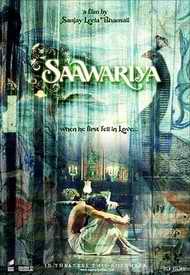
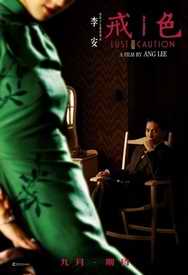 Ang Lee's Lust, Caution rated NC-17
Ang Lee's Lust, Caution rated NC-17  Alt TV has blamed a drunken employee for breaches of broadcasting
standards that have seen the channel taken off air.
Alt TV has blamed a drunken employee for breaches of broadcasting
standards that have seen the channel taken off air.  Protecting children, teenagers and women!
Protecting children, teenagers and women!  Canadian TV censors whinge at post victory sports interview
Canadian TV censors whinge at post victory sports interview  Lest it give the 'natives' ideas
Lest it give the 'natives' ideas  Nigeria's Kano state goes censorship crazy
Nigeria's Kano state goes censorship crazy  Censors ban films about killings and disappearances
Censors ban films about killings and disappearances  TV censors ban Chinese Pop Idol
TV censors ban Chinese Pop Idol 
 25% of local films banned in Bangladesh
25% of local films banned in Bangladesh  Concern at aging Canadian censors
Concern at aging Canadian censors 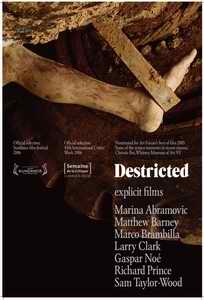
 Japanese police claim that they didn't censor enough
Japanese police claim that they didn't censor enough 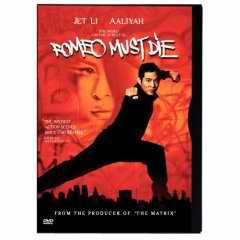
 Plan to abolish Swedish film censorship falters
Plan to abolish Swedish film censorship falters  Kaafila cinema release shelved in Pakistan
Kaafila cinema release shelved in Pakistan 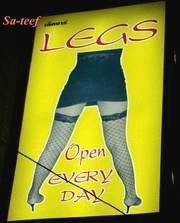 Philippines censor whinges at TV
Philippines censor whinges at TV 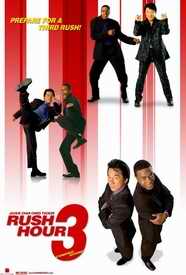
 French classifiers look to classify film festival films
French classifiers look to classify film festival films  Underwear adverts are banned as indecent, vulgar & suggestive
Underwear adverts are banned as indecent, vulgar & suggestive  Indian films are banned in Pakistan...mostly
Indian films are banned in Pakistan...mostly 
 Military censors in Sri Lanka
Military censors in Sri Lanka 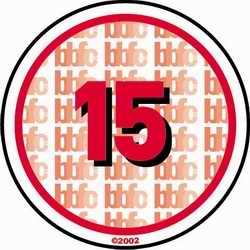 Thai film censors to be dominated by bureaucrats
Thai film censors to be dominated by bureaucrats 
 Censorship crazed Malays to re-evaluate banned films
Censorship crazed Malays to re-evaluate banned films  Transvestite chat show given marching orders in Pakistan
Transvestite chat show given marching orders in Pakistan 

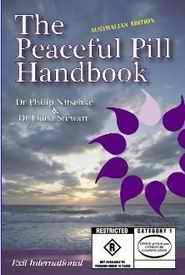 New Zealand bans euthanasia book
New Zealand bans euthanasia book  Biography banned in Burma
Biography banned in Burma 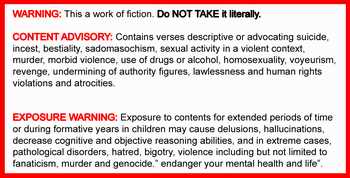 Call to classify the bible as indecent in Hong Kong
Call to classify the bible as indecent in Hong Kong 
 Kelvikuri was completed in 17 days and went to the Censor Board. The problems started then. On the premise that the film depicted the police
force in poor light, the Censor asked 2 police officers to see the film. When they police officers said they were horrified at the depiction of the police in the film, the Censor Board refused to give the clearance certificate.
Kelvikuri was completed in 17 days and went to the Censor Board. The problems started then. On the premise that the film depicted the police
force in poor light, the Censor asked 2 police officers to see the film. When they police officers said they were horrified at the depiction of the police in the film, the Censor Board refused to give the clearance certificate.  Thailand's ministry of culture has drafted a new Thai Film Act to be submitted to national legislators in an effort to update the kingdom's currently archaic censorship system.
Thailand's ministry of culture has drafted a new Thai Film Act to be submitted to national legislators in an effort to update the kingdom's currently archaic censorship system.
 A vague chance of more adult fare on Philippines TV
A vague chance of more adult fare on Philippines TV  Undermining public
confidence in Singapore
Undermining public
confidence in Singapore  Pakistan maintains protectionist ban on Indian films
Pakistan maintains protectionist ban on Indian films  China
shows sensitivity to criticism of its censorship
China
shows sensitivity to criticism of its censorship  Kadhal Arangam banned in India
Kadhal Arangam banned in India  Turkey cancel TV series
Turkey cancel TV series  Malaysian chat show banned after comment about age of Muhammed's wife
Malaysian chat show banned after comment about age of Muhammed's wife 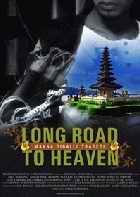 Long Road to Heaven banned in Bali
Long Road to Heaven banned in Bali  Miss Anara banned in India
Miss Anara banned in India  In protest of widespread book banning
In protest of widespread book banning  Preventing excessive nudity in Singapore by book banning
Preventing excessive nudity in Singapore by book banning 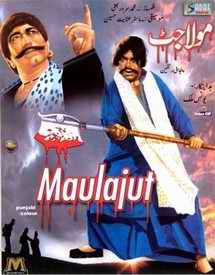 And no doubt Pakistan's crime problems will be solved as a result
And no doubt Pakistan's crime problems will be solved as a result 
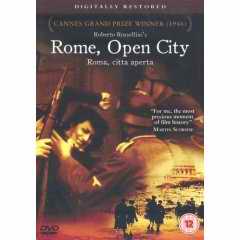
 From Anthony who wrote to the Irish censor, John Kelleher
From Anthony who wrote to the Irish censor, John Kelleher  Film not shown in India for fear of vandalism
Film not shown in India for fear of vandalism  Political changes allow restoration of cuts to Nepal film about slavery
Political changes allow restoration of cuts to Nepal film about slavery  First Bond film to pass the Chinese censors
First Bond film to pass the Chinese censors  Year of the pig to be less 'offensive' in China
Year of the pig to be less 'offensive' in China 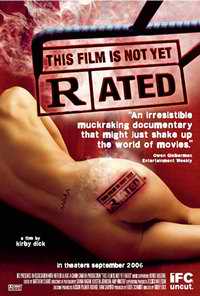
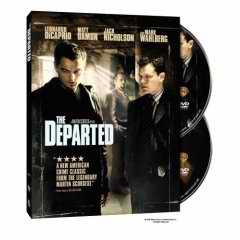
 Indian nutter asks for deletion of car chases
Indian nutter asks for deletion of car chases  Whinging at the Italian censor
Whinging at the Italian censor 